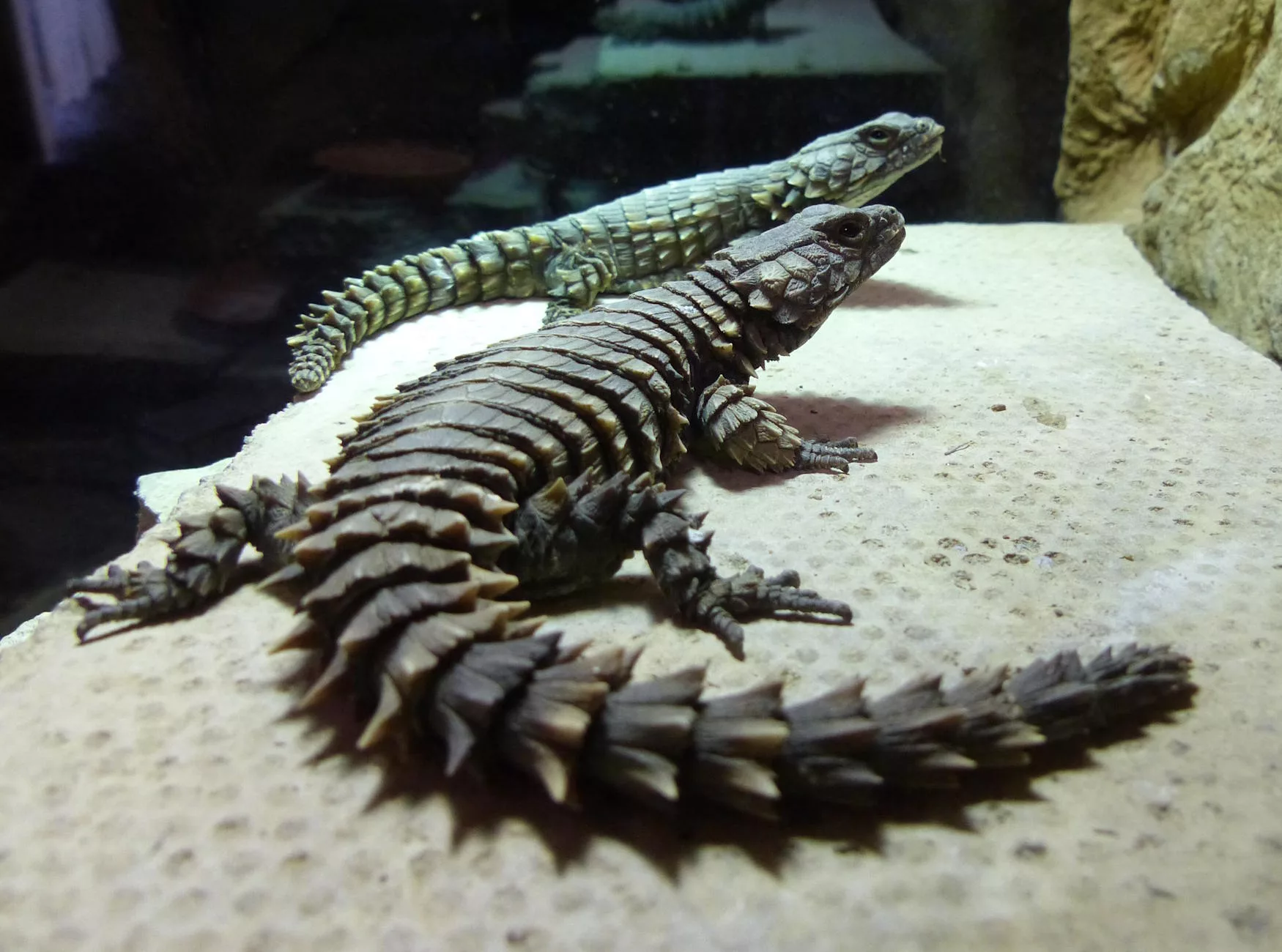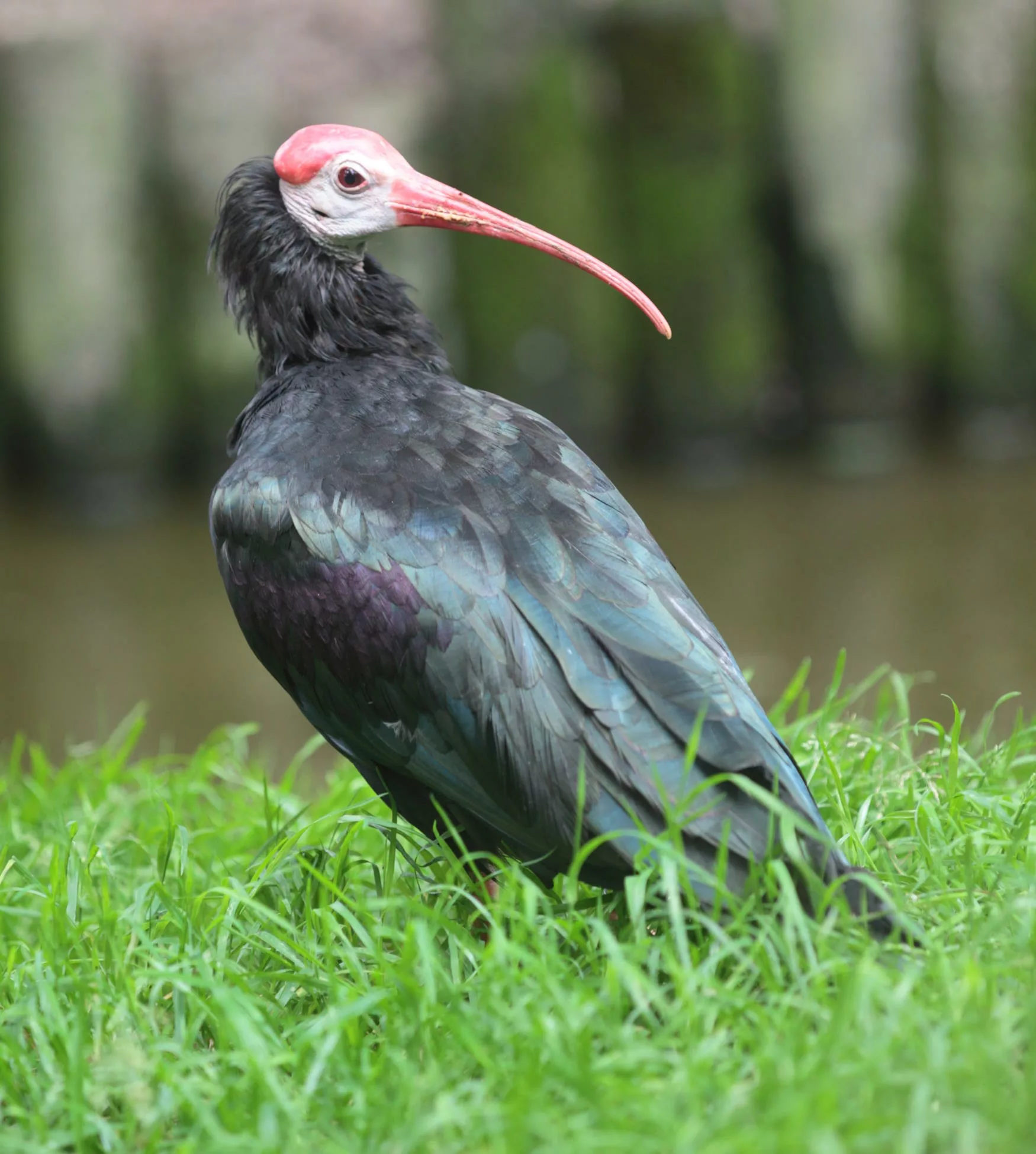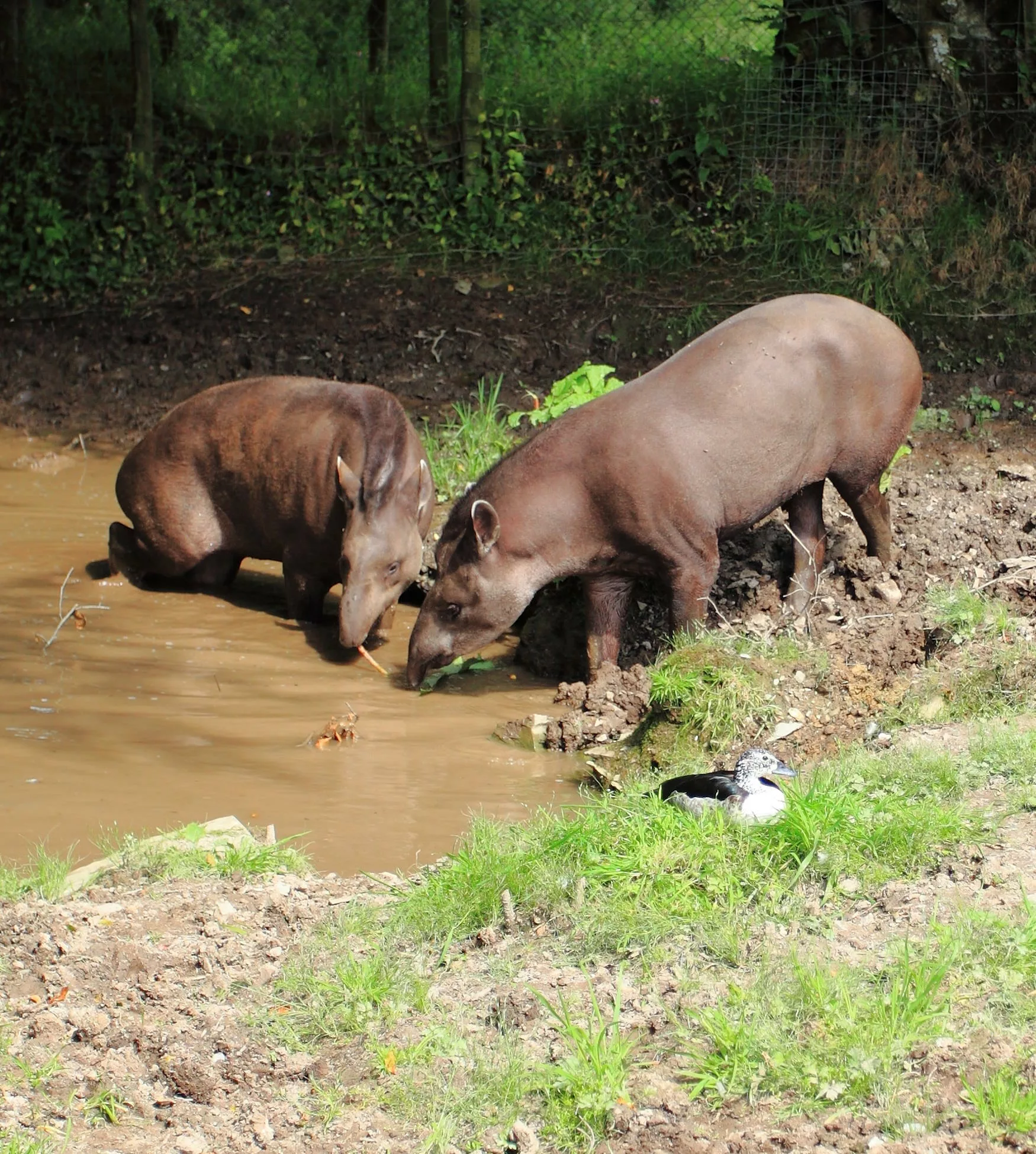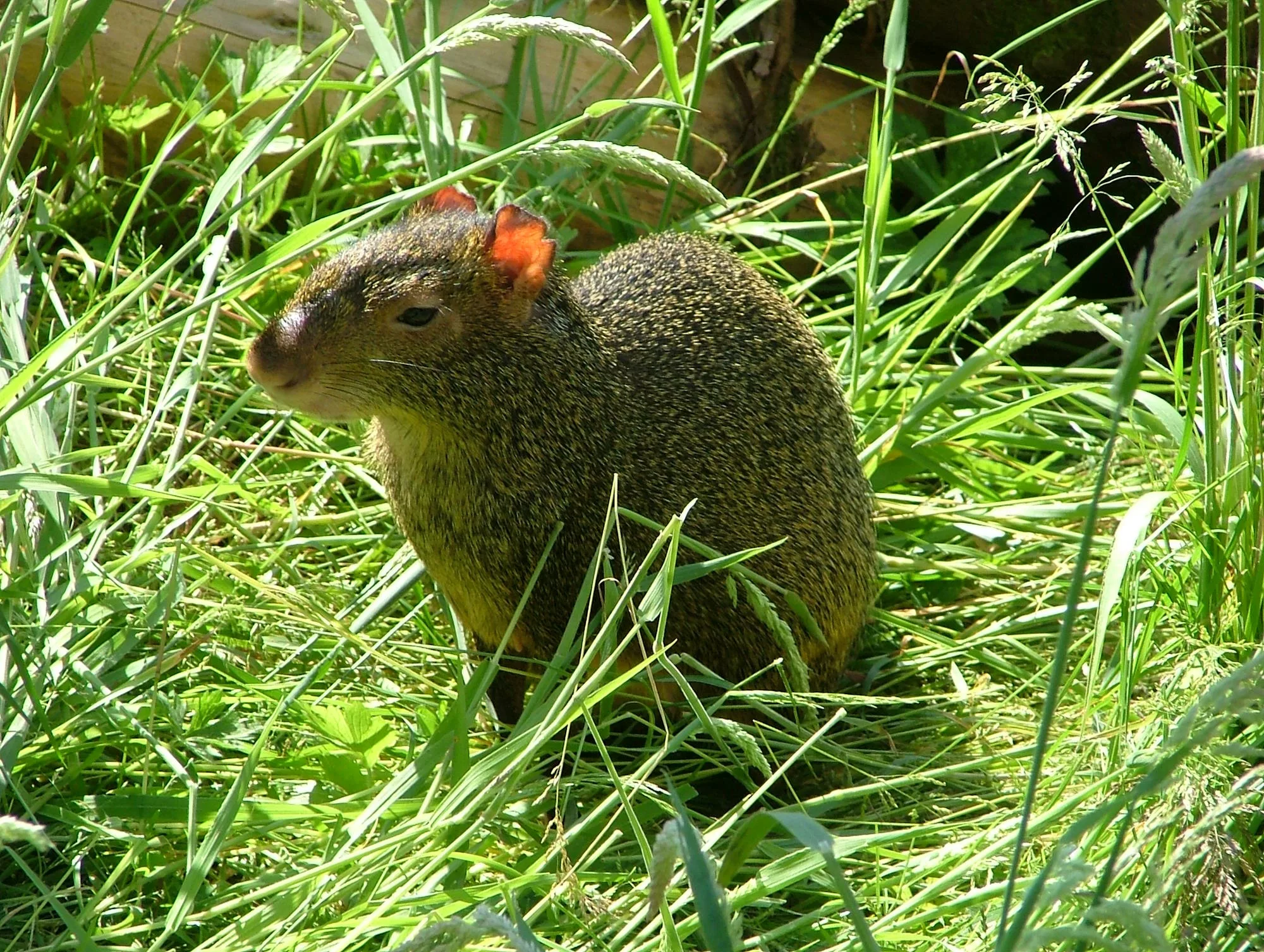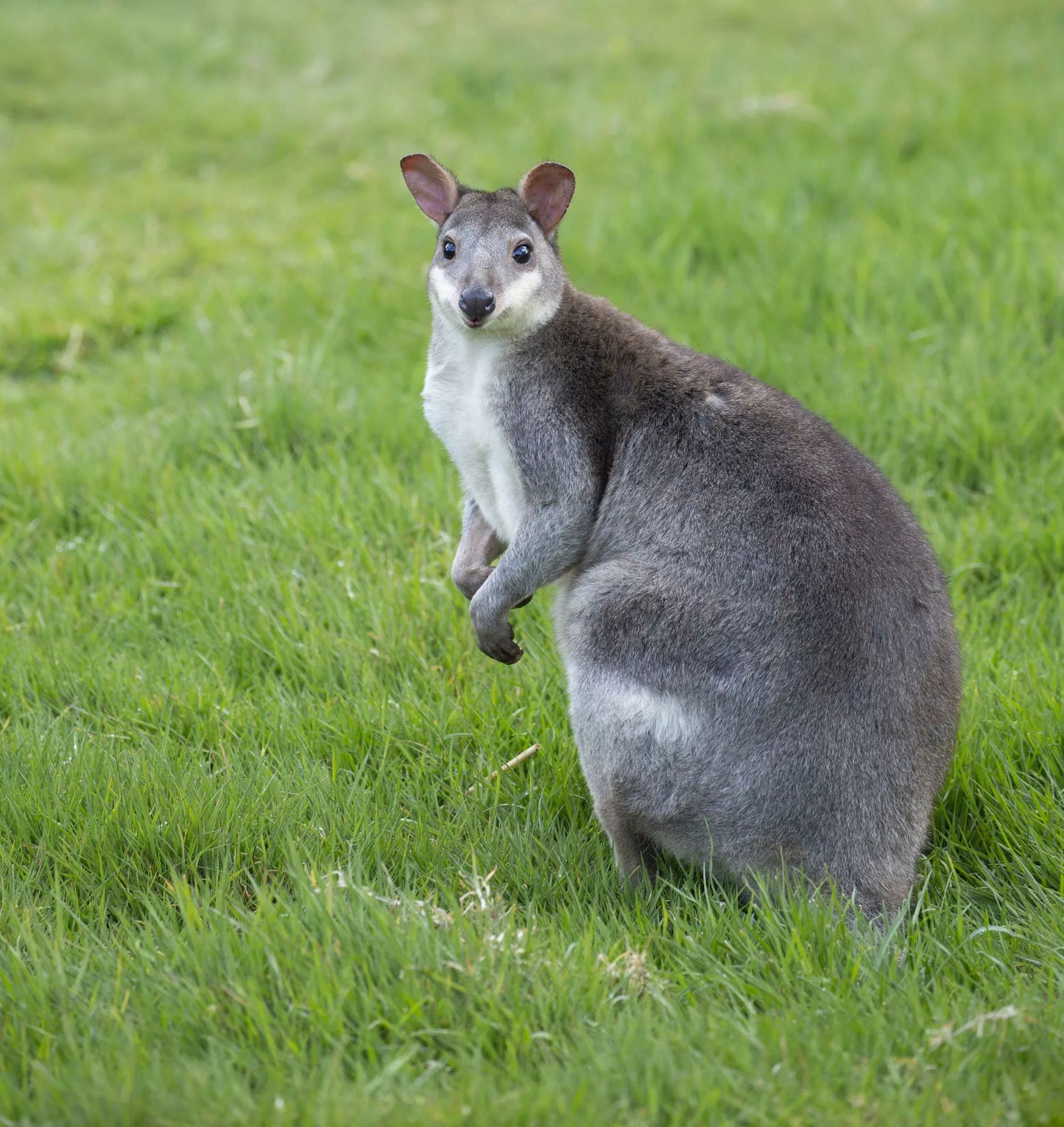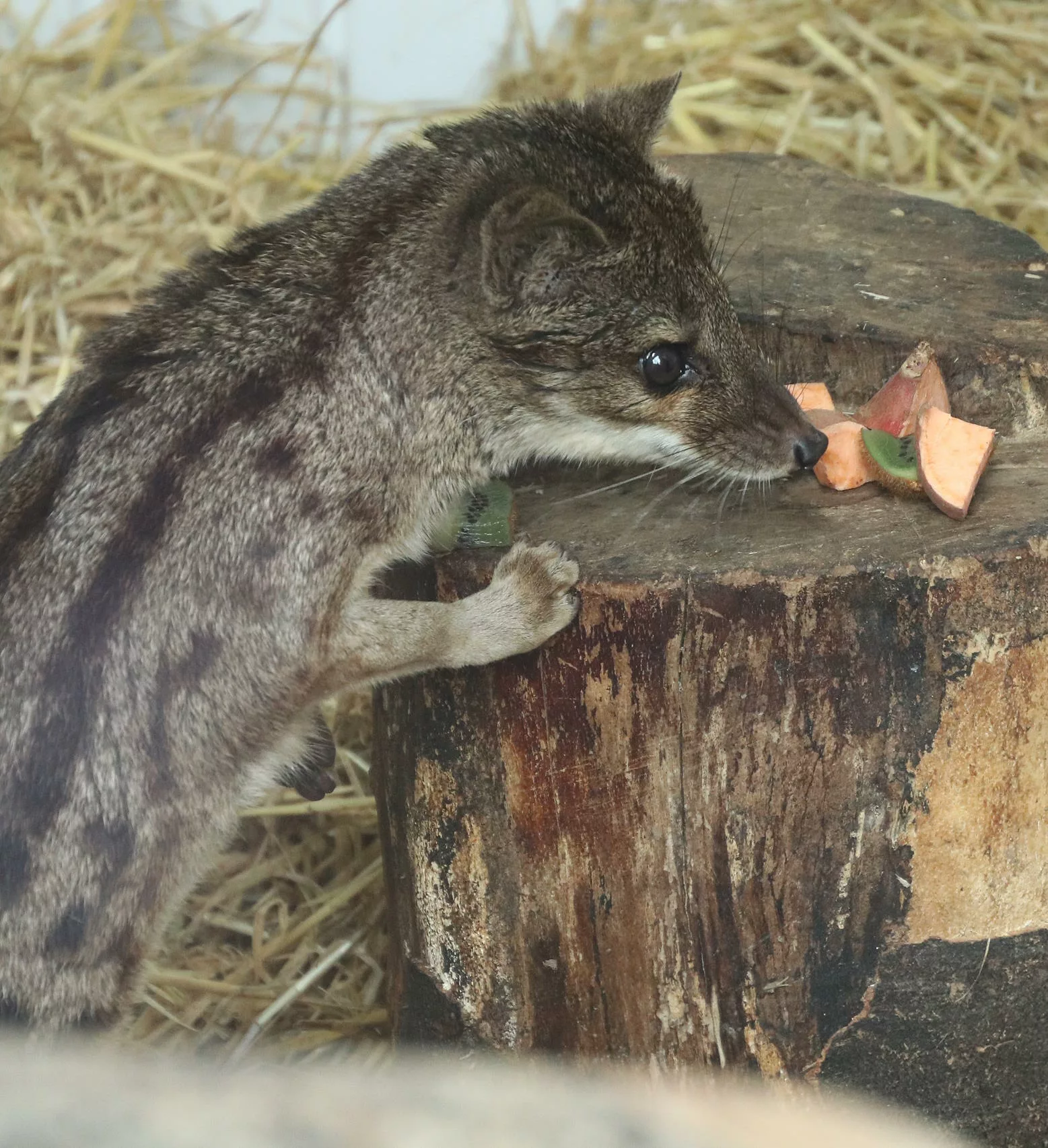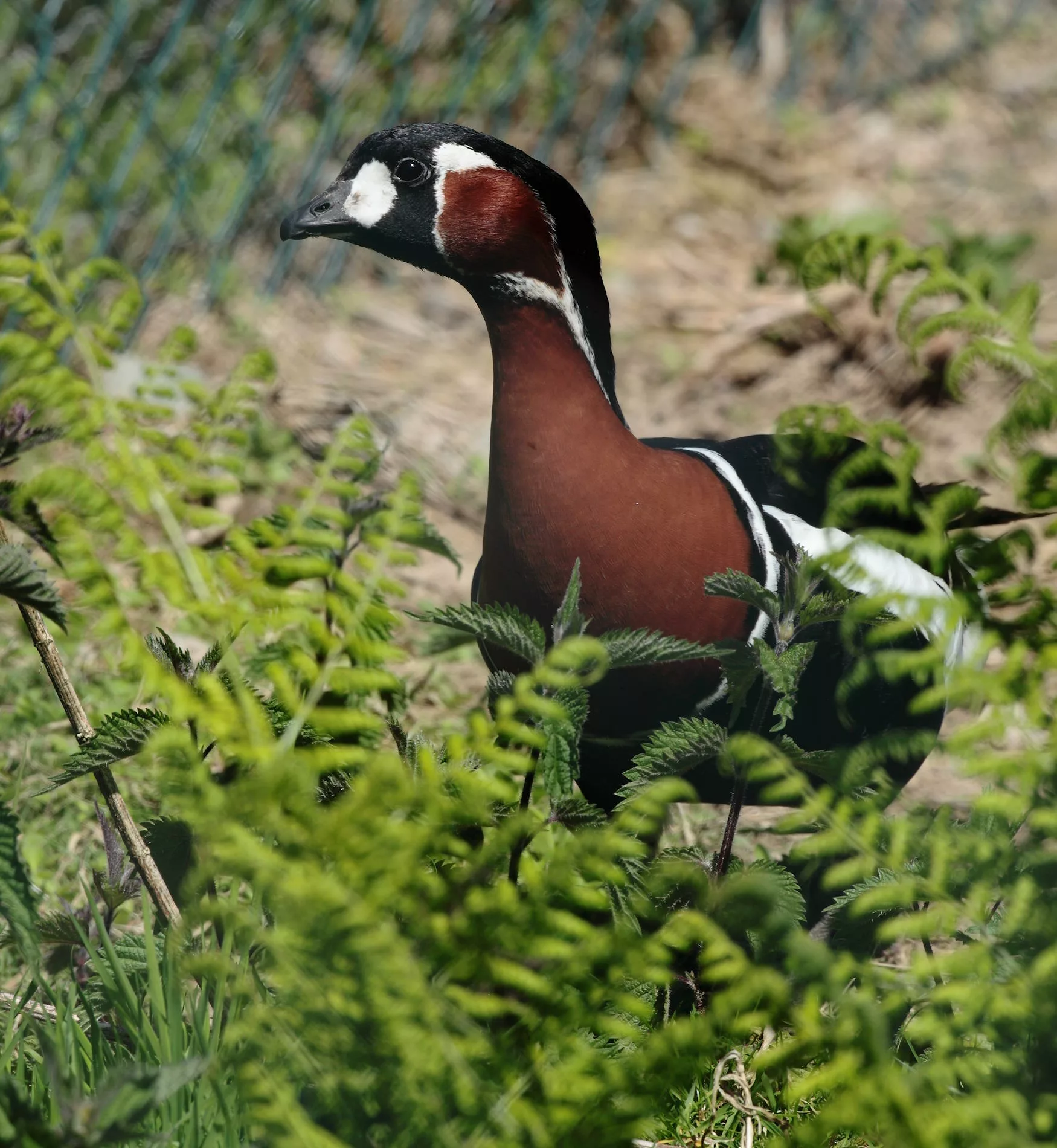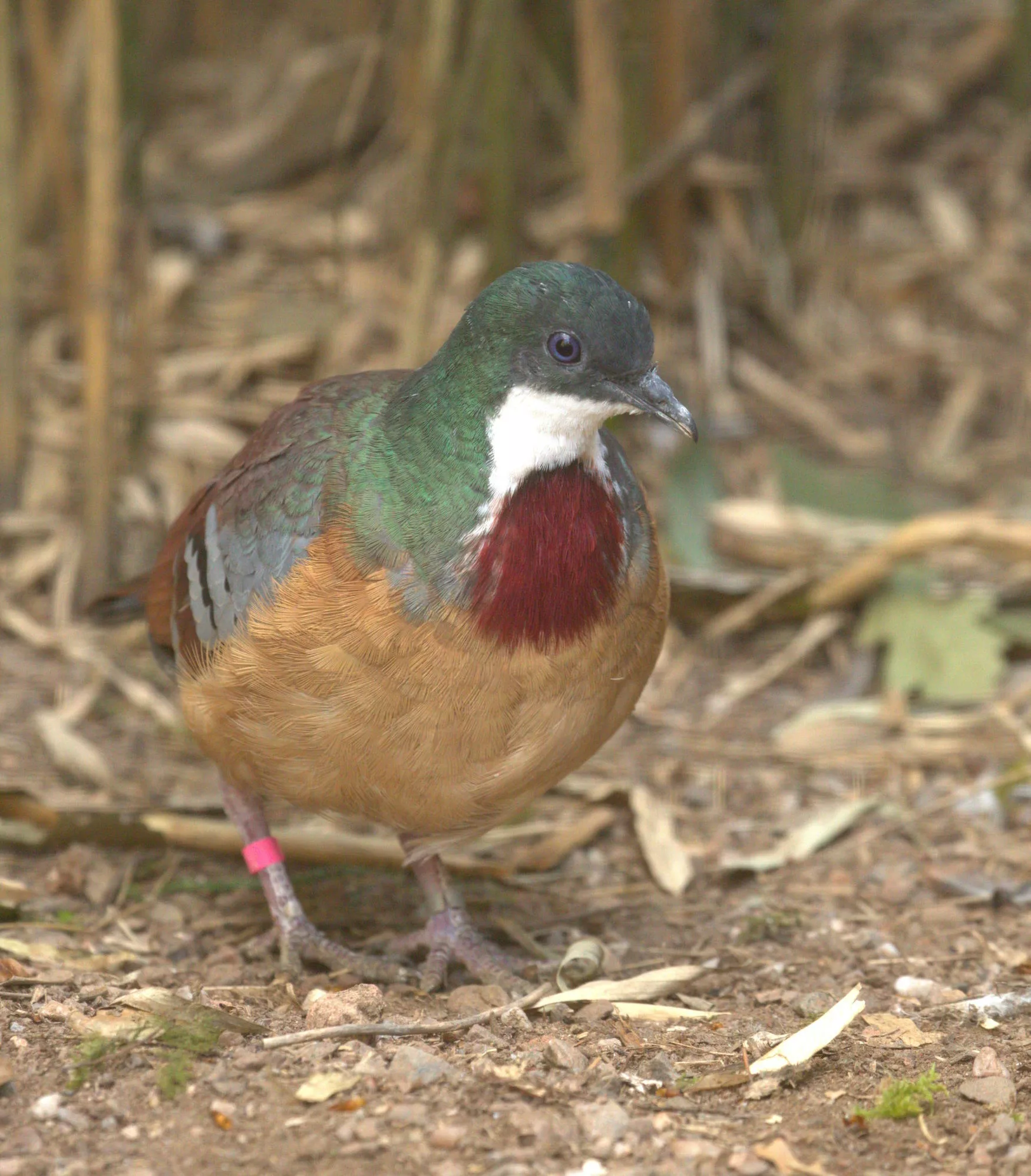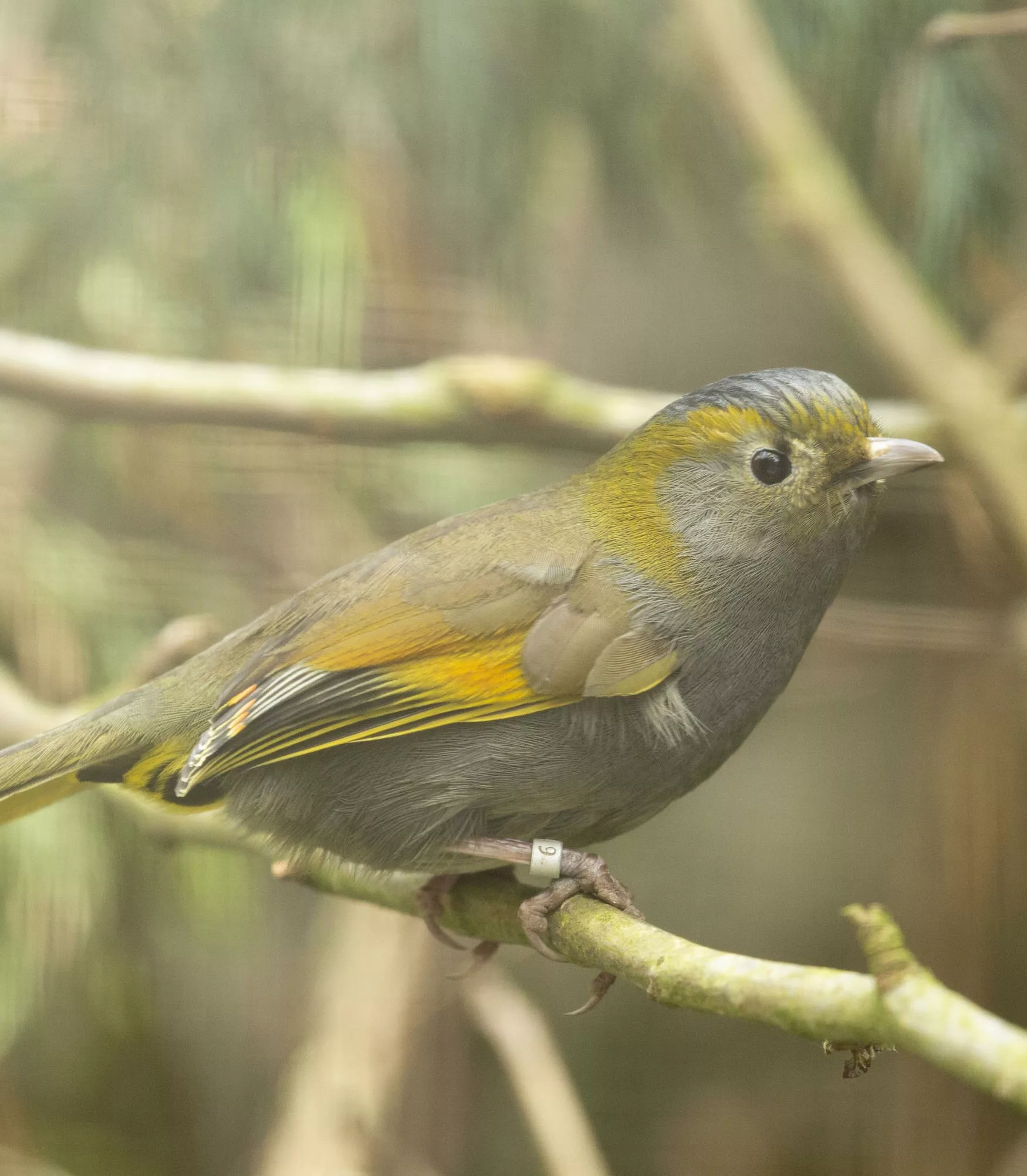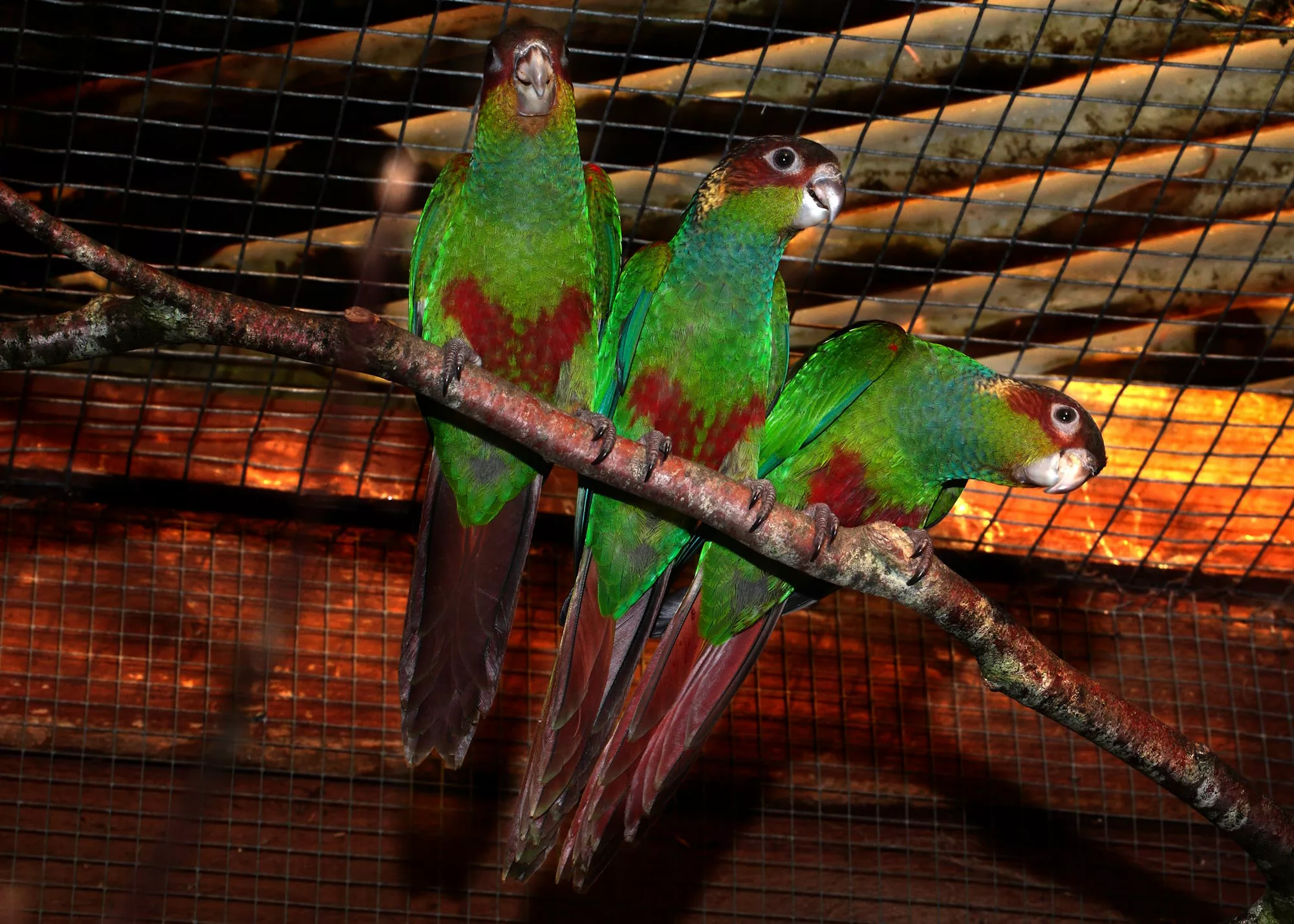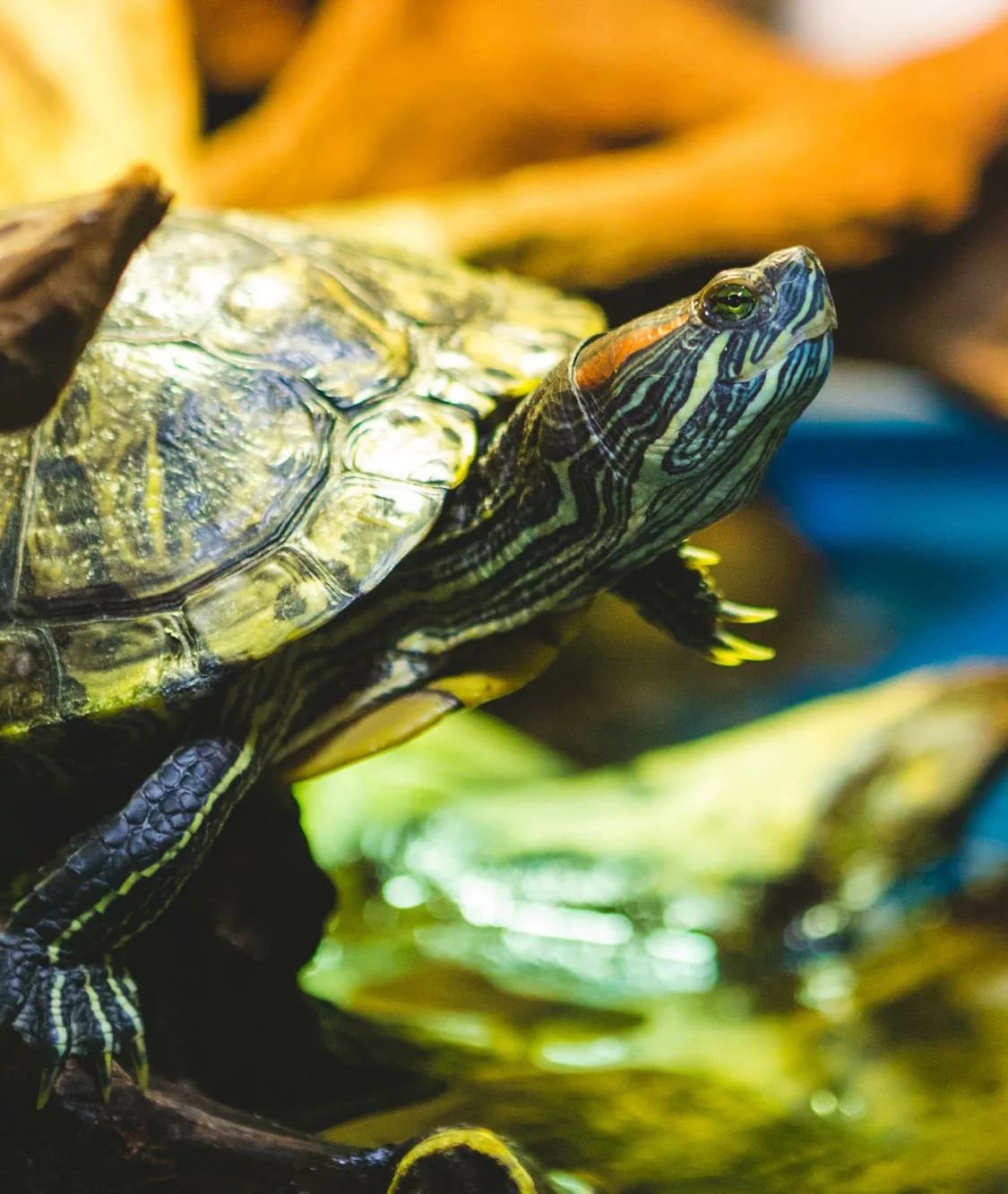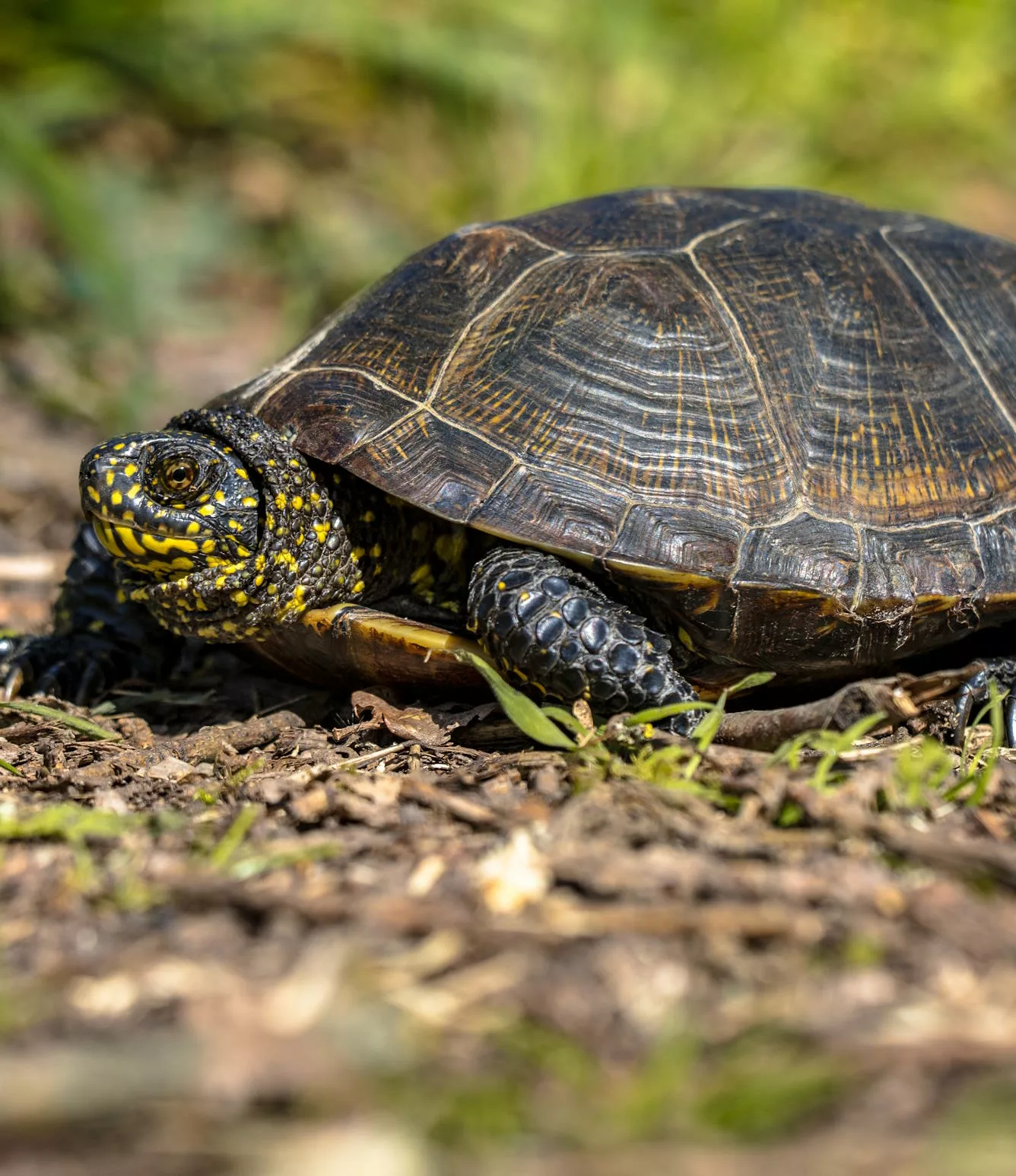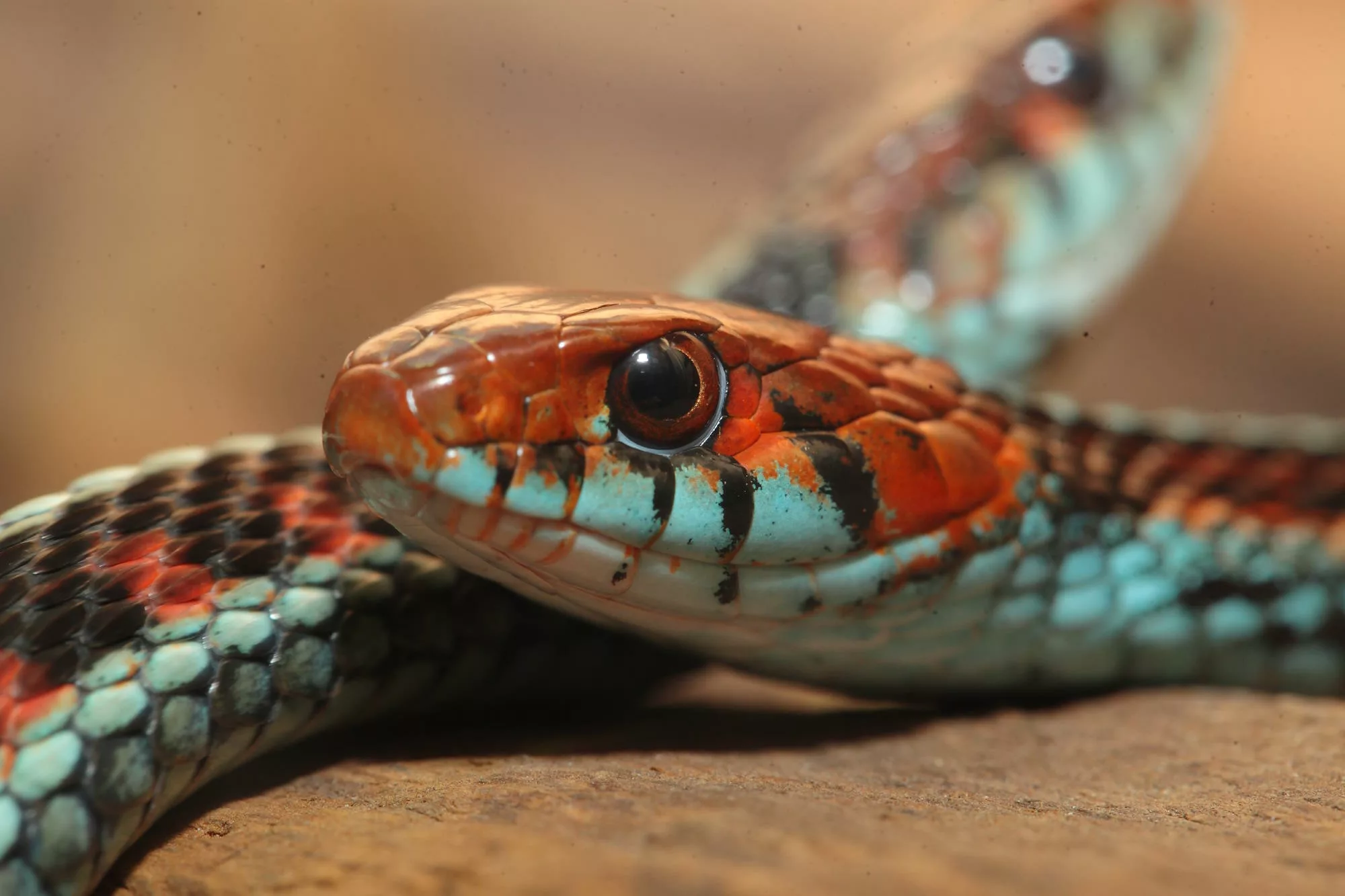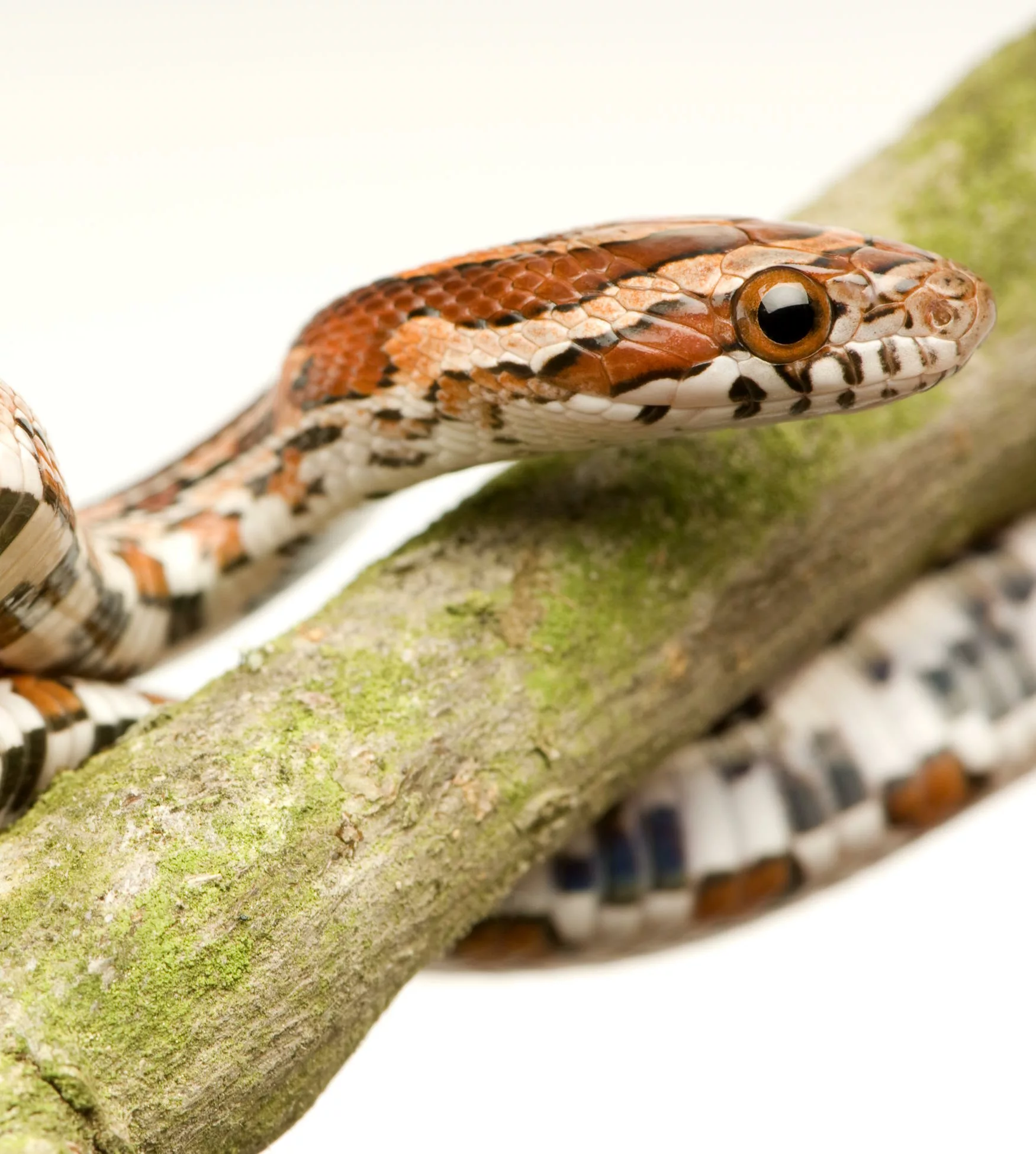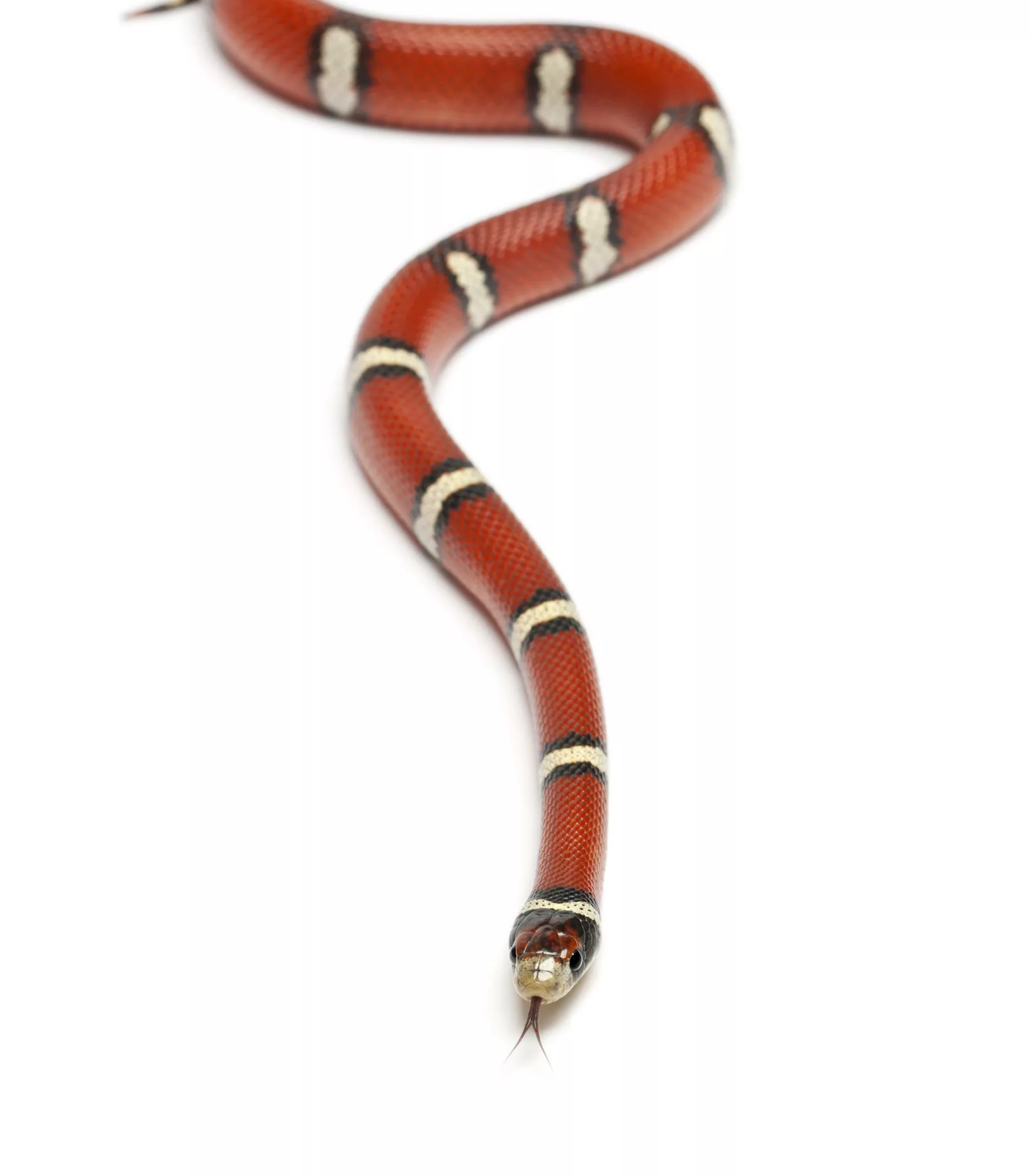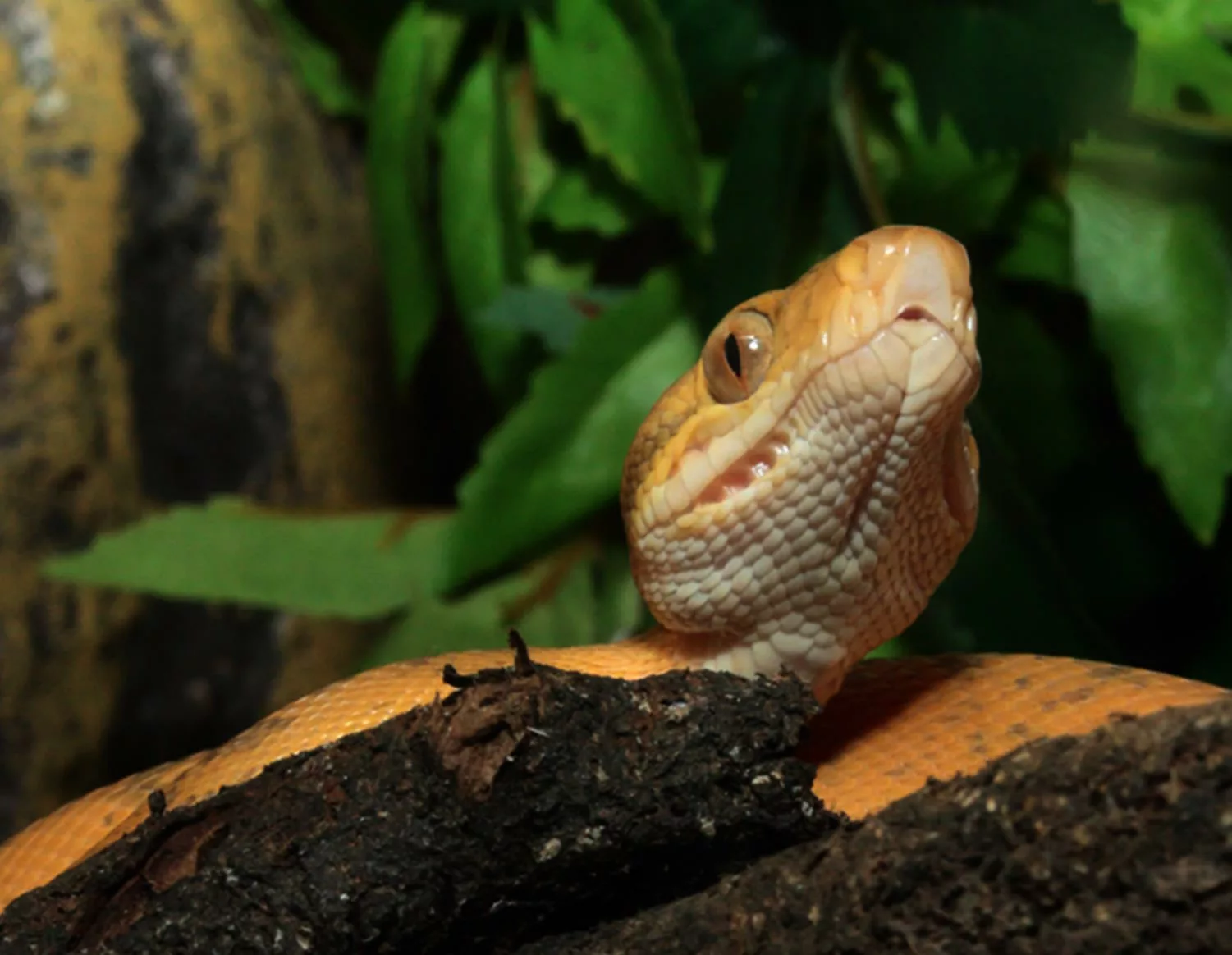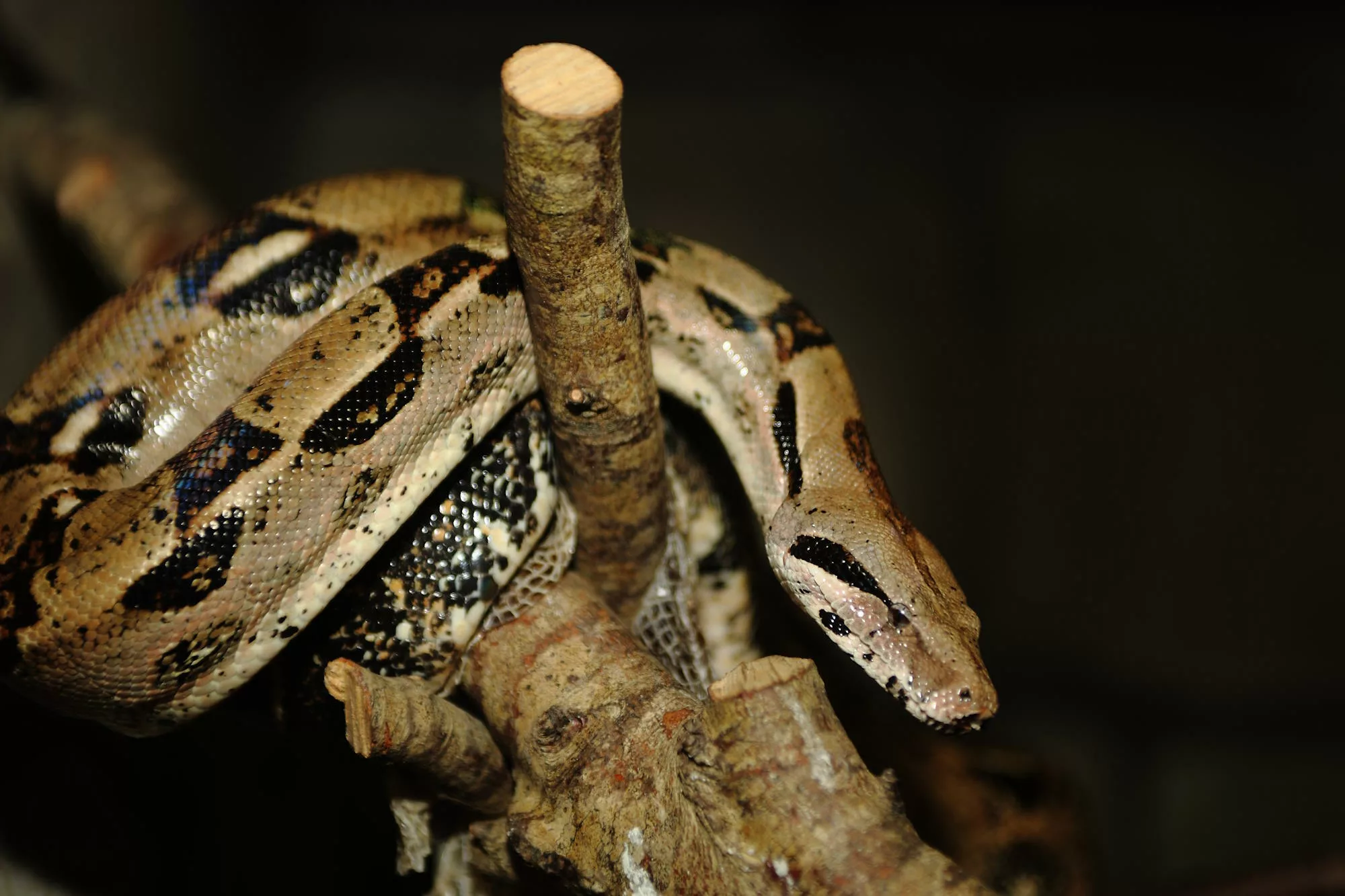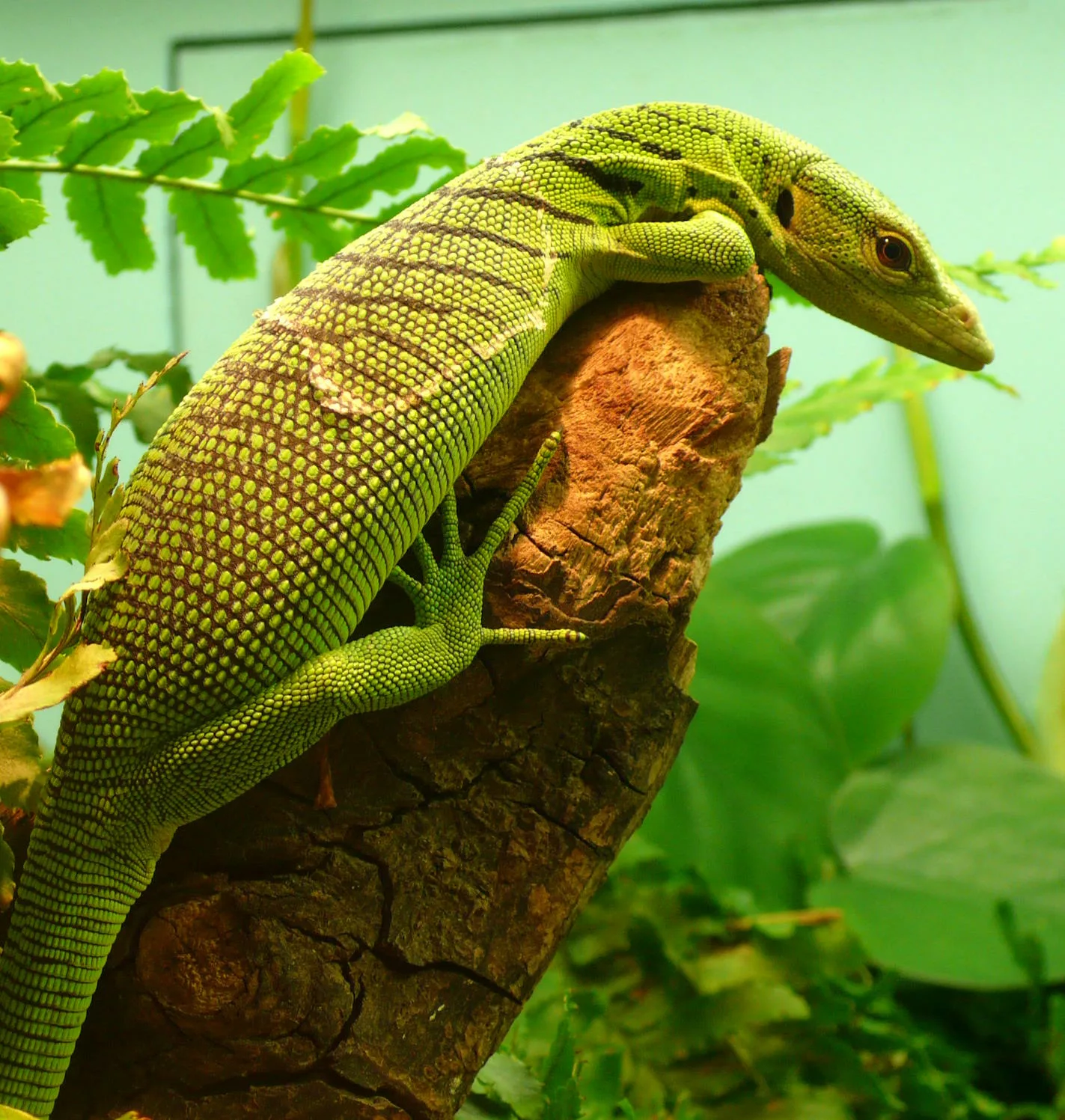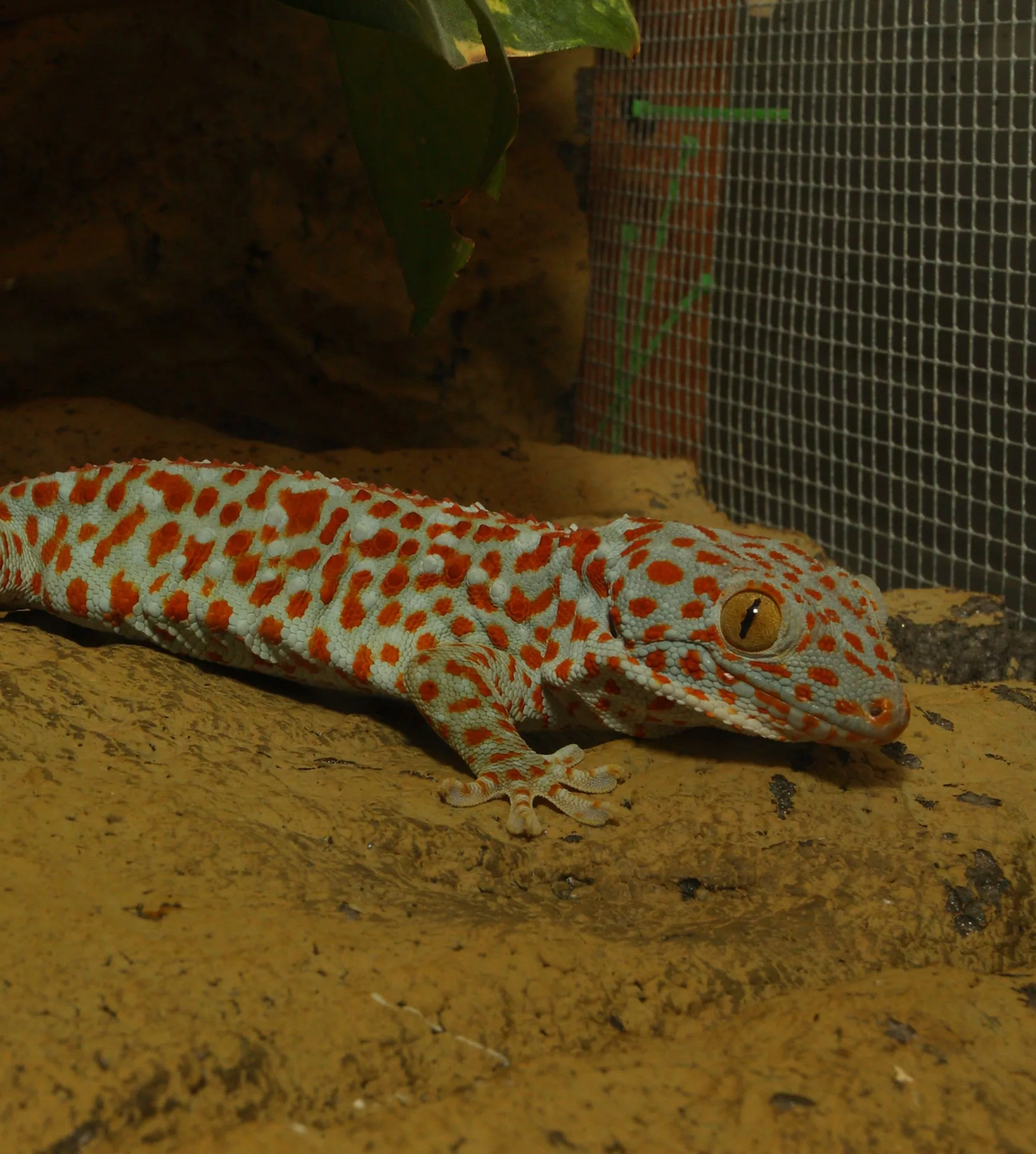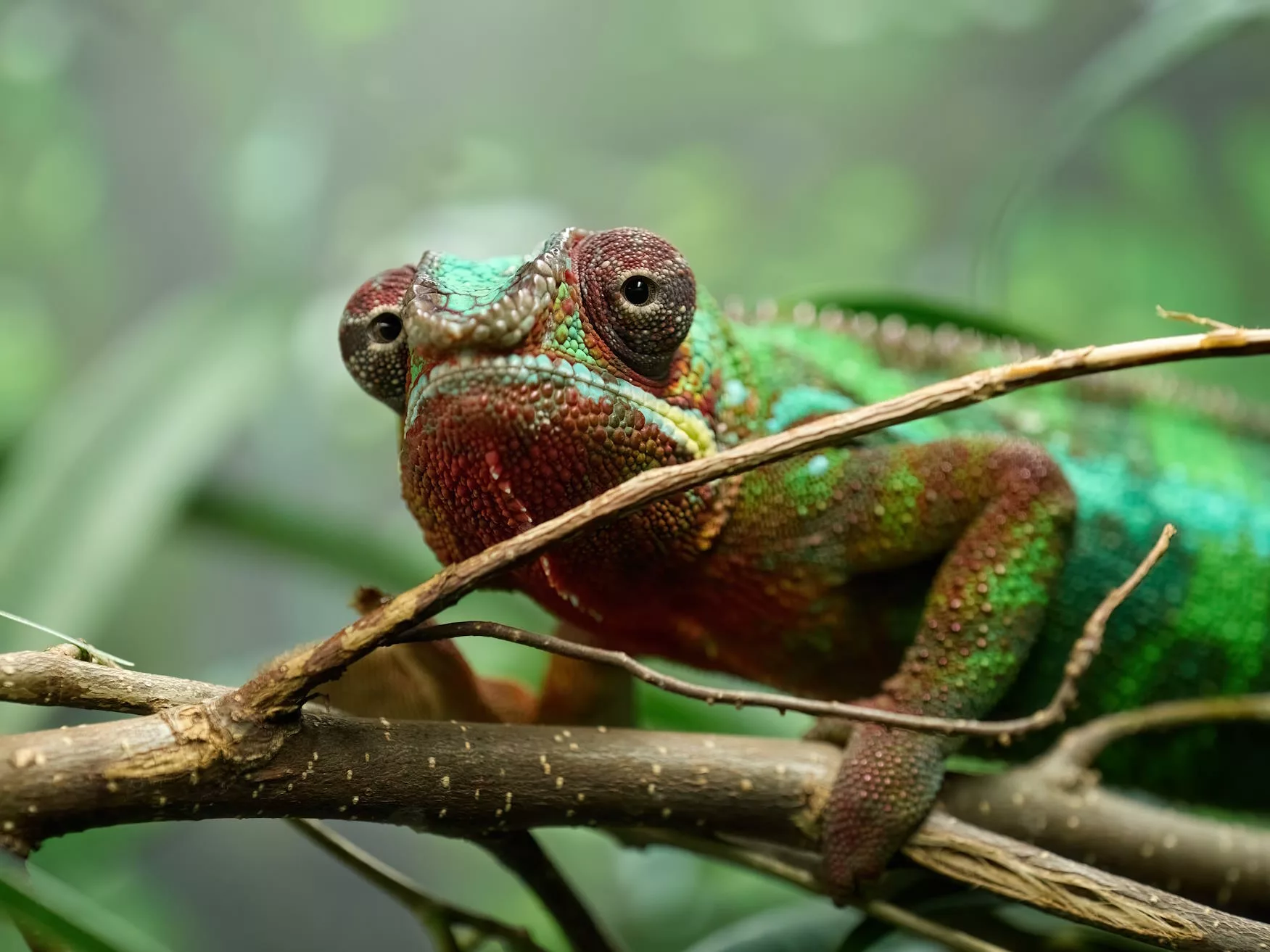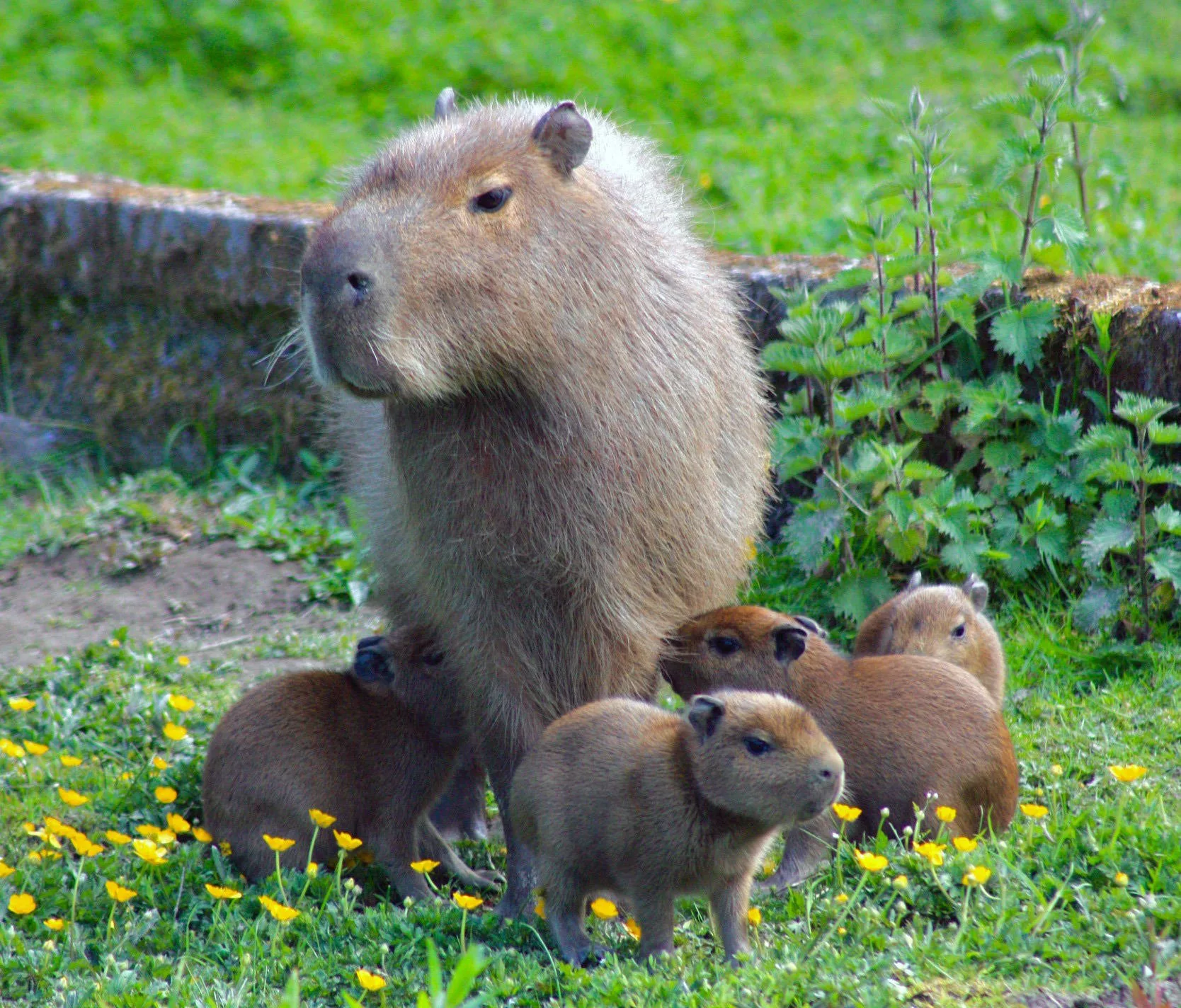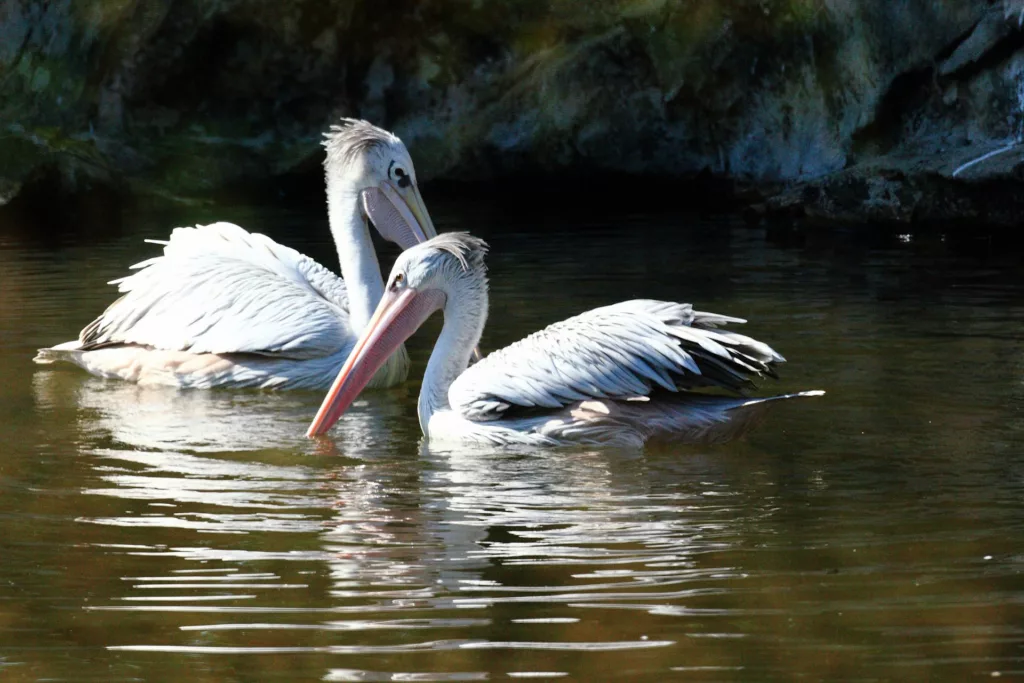
Pink-backed pelican
Scientific name: Pelecanus rufescens
IUCN listed as: Least Concern
Learn before you visit!
Here are some facts about the species – Discover what they eat, find out about their natural habitat, see what they like to do, and more… Set the reading style to suit you too, everyday speak or something aimed towards children.
Child-friendly
Everyday
Diet
Pink-backed pelicans mainly eat fish, but they also snack on crustaceans, amphibians, and small birds. They catch their meals by dipping their bills into the water, often teaming up to round up fish into shallow areas. Their stretchy pouches help them scoop up lots of water and fish at once.
Pink-backed pelicans love fish but also munch on crustaceans, amphibians, and small birds. They hunt by dipping their bills into the water, sometimes working in groups to round up fish. Their stretchy pouches help them scoop up lots of food at once.
Breeding
These pelicans like to nest in big groups, often on islands or remote wetlands. To woo a mate, males show off with head bobs and neck stretches. Once they pair up, they build nests together on the ground or low trees and the female lays a few eggs. Both parents take turns sitting on the eggs and looking after the chicks.
These pelicans nest in big groups, often on islands or wetlands. Males impress females with head bobs and neck stretches. Once paired, they build nests together on the ground or in trees, and the female lays eggs. Both parents take turns sitting on the eggs and caring for the chicks.
Habitat
You can find pink-backed pelicans hanging out in lakes, rivers, estuaries, and coastal lagoons. They like shallow water with lots of fish, but they can also handle saltwater spots. These birds usually nest and roost in trees near their feeding areas.
Pink-backed pelicans hang out in lakes, rivers, estuaries, and coastal lagoons. They prefer shallow water with lots of fish, often nesting in trees nearby.
At the zoo
In UK zoos, pink-backed pelicans are carefully looked after to keep them healthy. They live in spacious enclosures with ponds and greenery, similar to their natural wetland habitats. Their diet is rich in fish and other nutritious foods. To keep them active and engaged, zoos provide opportunities for natural behaviours like fishing for their food. Conservation efforts also ensure the protection of pink-backed pelicans and their habitats in the wild.
In UK zoos, pink-backed pelicans are given lots of care to make sure they’re happy and healthy. They live in big spaces with ponds and plants, like where they’re from in the wild. They eat yummy fish and other good foods to keep them strong. They can do fun things like fishing for their meals. Zoos also work together to help keep pink-backed pelicans safe in their natural homes.
Behaviour
These pelicans are quite social, often seen hanging out and hunting together in big gangs. They chat with each other using honks, grunts, and bill clattering. When it’s time to eat, they team up to herd fish into shallow spots for an easy catch. Sometimes they travel long distances to find the best feeding spots, especially when it’s not breeding season.
These social birds like to chat with honks, grunts, and bill clattering. They work together to hunt, herding fish into shallow spots. Sometimes they travel far to find the best feeding spots.
Fun facts
- Rosy Plumage: Pink-backed pelicans sport pink feathers during breeding time.
- Team Fishers: They work together to corral fish into shallow waters.
- Colonial Nesters: These pelicans often nest in big groups on islands.
- Stretchy Pouches: Their pouches can hold lots of water and fish.
- Dawn Diners: They’re most active at dawn and dusk, when they go fishing in groups.
- Pink Feathers: Pink-backed pelicans turn rosy during breeding time.
- Team Fishing: They work together to catch fish in shallow water.
- Big Nesting Crews: These pelicans like to nest in large groups on islands.
- Super Stretchy Pouches: Their pouches can hold lots of water and fish.
- Morning Munchers: They love fishing in groups at dawn and dusk.
More animals to discover at our zoo
Quick Links
Tickets & Prices
You can buy tickets for Exmoor Zoo securely online, as well as finding out more price options, discover offers, and more…
What’s on…
Exmoor Zoo hosts incredible Events all through the year. You can find out about what we’ve got in store here…
Routes & info
Like any great discovery, Exmoor Zoo can feel a little off the beaten path – but don’t worry – you can plan your journey with our recommended routes and other useful travel info.

